When we think of the word “stress”, feelings of overwhelm, fatigue or being overworked might come to mind. Yet physiologically, stress is our body’s natural chemical response to a perceived threat or extra exertion. It is a necessary part of our everyday functioning to react to and handle stress.
These days, it is not uncommon to experience a constant stream of stressors from all areas of our life. Types of stress can be environmental, nutritional, physical or psychological. Problems arise when we experience consistent or chronic stress without the necessary break our body needs. This issue of chronic stress is becoming more prevalent in today’s fast-paced culture(1). An overload of stress creates inflammation in the body(2), the root of most diseases and health issues today.
Chronic stress can lead to or exacerbate serious health issues and have long-term consequences(1) such as chronic inflammation, weight gain(3), injuries, infertility, depression, obesity, a poor immune system, digestive issues and cancers(4).
Yet there’s hope! We can lower stress and regain our energy and life balance by making small, healthy changes in our day. Even the smallest of changes can lead to big results, helping you feeling refreshed, invigorated and restored.
There are many potential causes of stress. Let’s explore these sources and how we can decrease our stress by increasing our healthy choices(5).
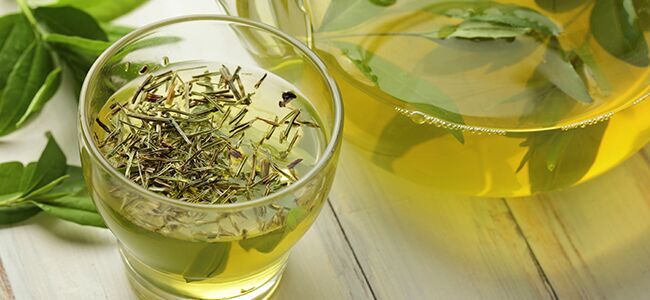
Causes
We experience stress from all areas of our life(2). As human beings, we have an evolutionary need for our stress response. Often termed 'Fight or Flight', this is our body’s method to survive and react to potential threats. When confronted with a source of stress, your adrenal glands (sitting above your kidneys) release hormones to prepare you to either run away or fight for survival. Your heart rate increases and your immune and digestive systems are suppressed so your energy can be focused towards your blood flow and brain functioning. Once the threat is gone, your hormone levels go back to normal and your body goes into its 'Rest and Digest' stage. Unless, that is, there are too many “threats” and you remain in a state of stress leading to chronic stress. When you experience too much stress, your body will send out SOS signals in the form of symptoms to tell you something is wrong(6). In order to heal our body naturally, we need to address the potential sources.
Types Of Stress
Acute Stress
Acute stress is a single, taxing experience. This could be the anxiety felt when giving a public speech, a sports injury in a game, jet lag from a long flight or getting a bout of food poisoning(10).
Episodic Acute Stress
When we choose to act, feel or experience life in a way that continues to drain us, we can experience episodic acute stress. Our lifestyle choices and ways of being are often the source of this repetitive and stressful behavior(10). For example, self-criticism, highly competitive personalities, perfectionism, and constantly worrying.
Chronic Stress
Chronic stress slowly wears us down physically, emotionally and energetically(10). It can creep up on us because our body will start to ignore the constant influx of SOS signals. Chronic stress leads to chronic inflammation of the body, with both being the root of most diseases and health issues today.
Here are some examples of daily stressors that impact chronic stress:
- Psychological - Emotional strain from a demanding job, lifestyle, relationships. Self-critical behavior, anger, anxiety, depression.
- Environmental - Repetitive exposure to chemical pollutants or toxins found in drinking water, air quality, cleaning supplies or personal care products.
- Physical - Overtraining, poor movement patterns or postural habits, repetitive overuse.
- Nutritional - Consuming acidic or processed foods, pesticides and herbicides in food.
Symptoms
- Frequent colds / flu
- Digestive issues(6)
- Headache
- Constipation, nausea, diarrhea
- Sleep problems, difficulty in falling and staying asleep, insomnia
- Loss of sexual desire(6)
- Infertility(7,6)
- Low energy
- Skin conditions
- Chronic muscle tension(6)
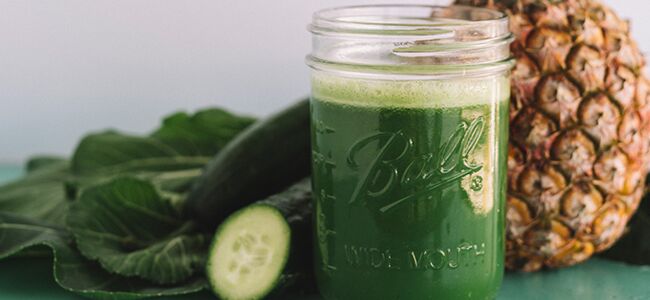
Treatment
Nutritional Guidelines for Healing
- Opt for alkaline foods. Instead of fretting over a list of what NOT to eat, start by increasing the foods that are most beneficial to your body’s health. Alkaline foods help balance your pH levels and decrease acidity in your body (acidity is connected to inflammation and stress). Alkaline foods include raw, green vegetables. Add a salad to your day or blend up a green smoothie.
- Add fermented foods throughout your day. Kombucha, sauerkraut, kimchi and other fermented foods contain probiotics, improving the beneficial bacteria within your gut. Fermented foods can improve digestion and therefore decrease our nutritional stress. Plus, the majority of your immune system resides in your gut. By enjoying fermented foods, we can improve our immune system, putting less stress on our body.
- Choose organic when possible. Conventional produce can contain toxic residue from herbicides and pesticides. This can make it more difficult to digest food and creates more stress within the body. Choose organic foods to minimize the amount of toxins your body absorbs. Less toxins means less stress and more nutrients for your body.
- Create a new type of coffee break. If you’re craving a cup o’ joe, try a matcha tea latté with nut milk. Matcha will still energize us with a kick of caffeine, yet with the added benefits of the antioxidants we find in green tea. It’s helpful to give coffee a break, as it is acidic to the body and a stimulant. This puts extra stress on our body because it has to work super hard to try and handle the spike and drop in energy.
Herbal, Superfood and Supplement Therapy
- Herbal teas. Soothing, relaxing and balancing. Sipping an herbal tea is a delightful way to slow down and reset your body and mind. Decrease your nutritional and emotional stress with holy basil, chamomile, peppermint or your favorite herbal tea.
- Polyphenols. While green tea does contain some caffeine, it also contains polyphenols. These are antioxidants that help decrease oxidative stress, thus helping our cells regenerate. The better our cells regenerate, the less stress and premature aging we experience.
- Adaptogens. Adaptogens are foods that can help combat the stresses your body experiences. They work to bring you back into balance. Many herbal teas include adaptogens or you can buy them individually in powder or capsule form at your local health food store. Try adaptogens like maca, rhodiola, holy basil, milk thistle, and ashwagandha. These are great to add to your morning smoothie, too!
Mind/Body
- Mix up your exercise routine. Repetitive movements can create overuse in your muscles and tissues, which can create extra stress on your body(9). Mix up your daily activity and exercise routine to invigorate the muscles and tissues that may not get used as often. For example, if you love practicing yoga, try a different style or take a pilates class instead. If you love going on walks, mix up the terrain that you walk on, such as grass, dirt, hills, tree roots or rocks.
- Spend time outdoors. Or take a picture. The simple act of being outdoors in nature has been shown to immediately decrease stress and anxiety(8). Don’t have any trees, parks, ocean or lakes nearby? No worries! Place pictures of your favorite natural settings on your desktop, fridge and framed wall photos. Simply by looking at these images of the outdoors has been shown to lower stress levels(6).
- Surround yourself with Positive Nouns: People, Places & Things. Decrease stress by choosing to spend time with people, places and things that leave you feeling inspired, uplifted, relaxed or energized. This could be going for a walk with a friend, adding indoor plants to your workspace or wearing a mala bracelet to remind you of your positive intention.
- Practice presence. By focusing on this present moment, we can release anxiety, worries and stress while increasing feelings of happiness(11). One of the simplest ways to practice presence is to incorporate a breathing or meditation practice into your day.
- Home & Body Products. Decrease environmental stress by choosing toxin-free natural cleaning products and body care. Use The Environmental Working Group as a reference and guide to compare products and ingredients.
- Get better quality sleep. Sleep is a key ingredient to decreasing stress levels and regenerating your body. Artificial blue light from our smartphone, television, computers, house lights and other devices decrease melatonin levels. Among other amazing benefits(13), melatonin helps regulate our sleep cycle(12). Your body will thank you when you minimize artificial light and tech time in the evening and before you go to bed.
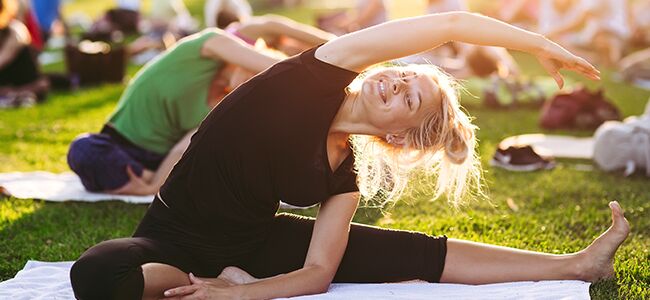
Programs
Ready to make a change but not sure where to start? Take your pick from a range of inspiring programs tailored to your specific goals. Our guided programs include everything from meal plans, guided meditations, sleep, cleansing and more. They'll support and empower you to improve your health and be the best you can be!
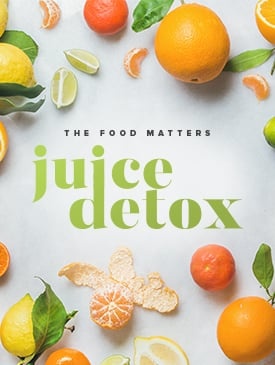
The Food Matters Juice Detox
Designed to help you lose excess weight, increase your energy, and reboot your system from the inside out in just 7 days. Unlock the hand-curated meal plan and shopping lists, and start juicing to feel better than you have in years.
Find Out MoreReferences
- American Psychological Association - The Impact Of Stress
- Carnegie Mellon University - How Stress Influences Disease
- Stress. 2015; 18(4): 381–399
- National Cancer Institute
- Stress. 2014 Mar; 17(2): 157–168
- Int J Environ Res Public Health. 2015 Dec; 12(12): 15860–15874
- PLoS One. 2009 Jul 31;4(7):e6446. doi: 10.1371/journal.pone.0006446
- Environ Health Prev Med. 2010 Jan;15(1):18-26.
- American Psychological Association -Stress Effects On The Body
- American Psychological Association - Stress: The Different Kinds Of Stress
- Science. 2010 Nov 12;330(6006):932
- Int J Biochem Cell Biol. 2006 Mar;38(3):313-6. Epub 2005 Sep 27.
- Brain Disord Ther. 2014; 4(1): 1000151.
This article is provided for your general information only and is not intended to be a substitute for independent professional advice, particularly medical advice, diagnosis or treatment. You should always seek medical advice from a qualified health practitioner which takes into account your personal circumstances, general health and medical conditions.








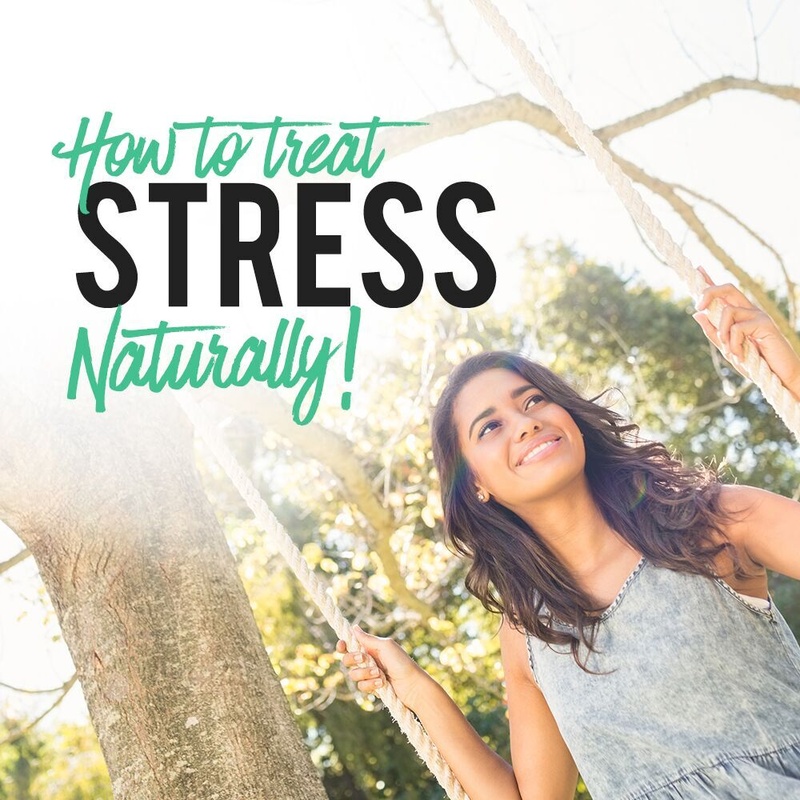


Was this article helpful?
Comment below to let us know!